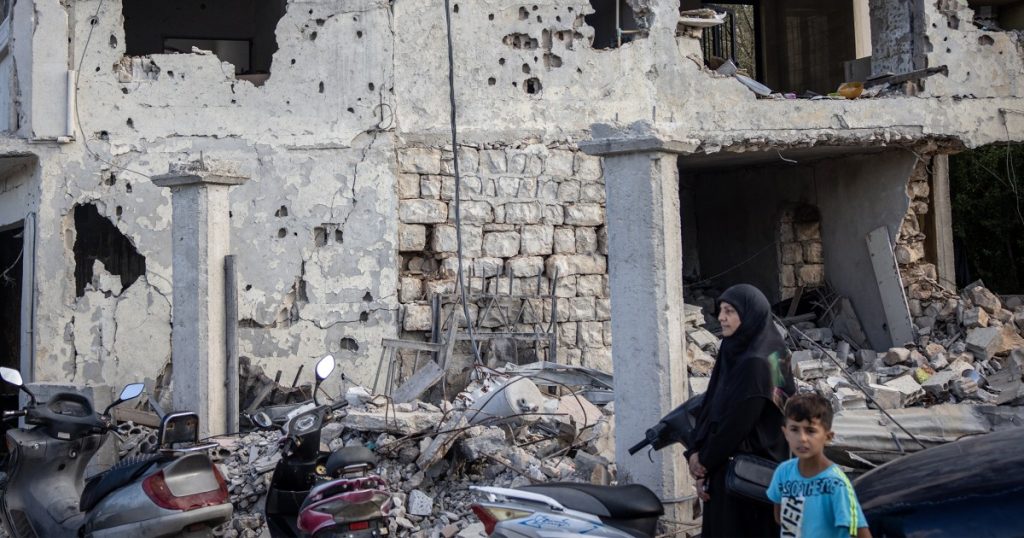Israel launched airstrikes inside Lebanon early Sunday targeting positions of the Shiite militia Hezbollah. The Israeli military accused Hezbollah of preparing to launch missiles and rockets towards Israeli territory. In a self-defense act, the Israeli military struck terror targets in Lebanon to prevent attacks on Israeli civilians. Israeli military spokesman Rear Adm. Daniel Hagari warned of impending rocket, missile, and drone attacks by Hezbollah into Israel, prompting sirens to sound in northern Israel. Lebanese media reported strikes in the country’s south, with social media footage showing apparent strikes in southern Lebanon. Hagari stated that Hezbollah was preparing for an extensive attack on Israel, putting Lebanese civilians at risk, though he did not provide detailed intelligence behind the claims. He urged civilians in areas where Hezbollah operates to move away to ensure their safety.
The airstrikes in Lebanon are part of the ongoing conflict between Israel and Hezbollah, dating back to the 1980s. Tensions escalated in recent months, with both sides engaging in sporadic clashes along the border. The airstrikes come as Israel seeks to prevent Hezbollah from gaining strength and acquiring advanced weaponry, which the militant group has used in previous conflicts with Israel. The Israeli military claims that the strikes were a preemptive measure to thwart Hezbollah’s planned attacks on Israeli civilians, citing intelligence that indicated an imminent threat posed by the militant group. The conflict between Israel and Hezbollah has deep-rooted political, religious, and historical complexities that fuel violent confrontations between the two sides.
Hezbollah, a Shiite militia backed by Iran, has been a formidable adversary for Israel, waging wars and conflicts against Israeli forces in the past. The group is seen as a terrorist organization by Israel and its allies, with a history of violence and aggression towards Israeli civilians. Hezbollah’s influence in Lebanon and the region poses a significant challenge to Israeli security, prompting preemptive strikes such as the recent airstrikes inside Lebanon. The group’s military capabilities, including rockets, missiles, and drones, have been a cause of concern for Israel, leading to heightened tensions and military action.
The airstrikes in Lebanon have raised concerns about the escalation of violence in the region, with the potential for further retaliatory attacks by Hezbollah against Israel. The airstrikes reflect the complex dynamics of the Israeli-Hezbollah conflict, with each side seeking to defend its interests and prevent the other from gaining an upper hand. The conflict has implications for regional stability and security, with the potential to draw in other actors and escalate into a broader conflict. The international community has called for restraint and de-escalation to prevent a further deterioration of the situation and the risk of a wider conflict.
The airstrikes in Lebanon have sparked condemnation from Lebanese authorities and regional leaders, who have called for an end to the violence and a return to dialogue to resolve the underlying issues fueling the conflict. The Lebanese government has denounced the Israeli strikes as a violation of its sovereignty and a threat to its national security. Regional powers, including Iran and Syria, have expressed support for Hezbollah and condemned Israel’s actions as aggression against the Lebanese people. The airstrikes have further strained relations between Israel and its neighbors, exacerbating tensions and sowing distrust between the parties involved.
As the situation continues to unfold, it remains unclear how the conflict between Israel and Hezbollah will evolve and whether further military action will be taken by either side. The airstrikes in Lebanon have underscored the fragility of the security situation in the region and the potential for violence to spiral out of control. Diplomatic efforts are needed to prevent a further escalation of the conflict and to address the underlying grievances and grievances fueling the violence. The international community, including the United Nations and major powers, must play a role in mediating between the parties and promoting a peaceful resolution to the Israeli-Hezbollah conflict. Only through dialogue and negotiation can a sustainable peace be achieved in the region and ensure the security and well-being of all parties involved.


